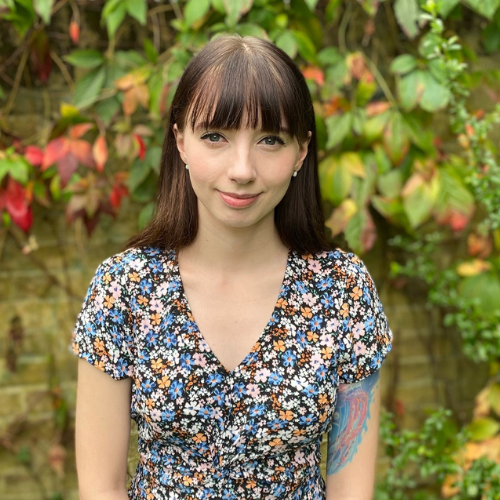No woman should ever feel unsafe walking in any neighbourhood, let alone their own. In this blog, we’ll outline the work our customers have done using technology to gather data and fight violence against women and girls (VAWG).
For all the information you’ll need on our Safe Spaces Heatmap and how to create your own safety initiative, simply download our free guide on using technology to fight VAWG.
For a number of years, Commonplace has been helping local authorities engage in Safer Spaces initiatives- especially those aimed to improve the safety of women, girls and other at-risk communities. We’ve crafted an interactive Heatmap specifically to increase engagement and gather as much feedback as possible about where people feel at risk so planners and authorities can improve these areas. Information comes directly from the women and girls who feel most vulnerable, so direct action can be taken against real issues they have identified.
The Commonplace Safe Spaces platform
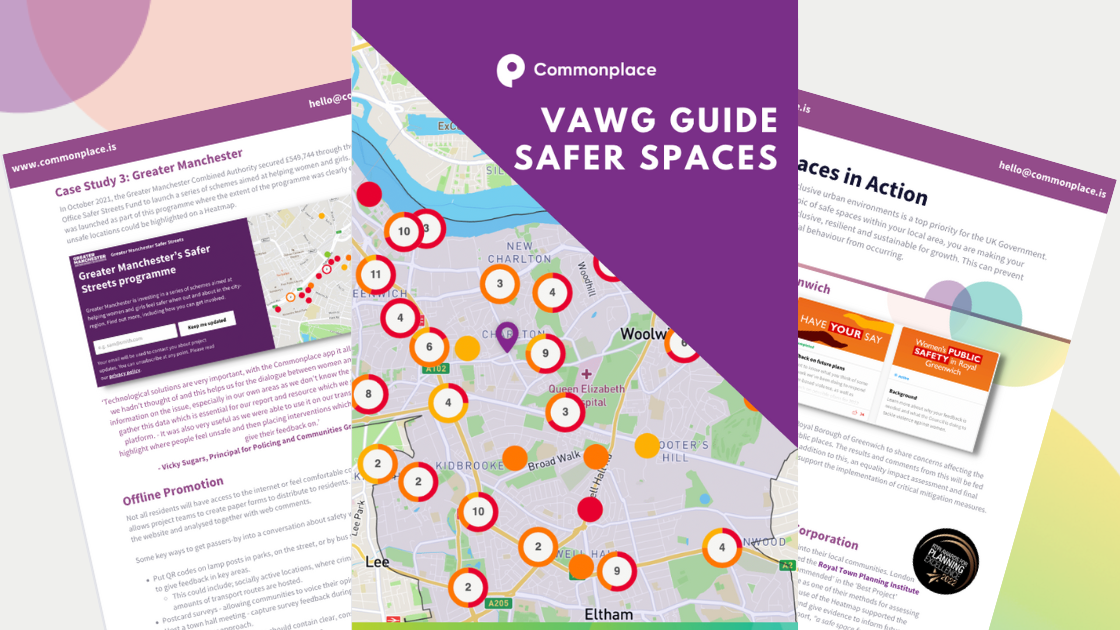
So, what is the Commonplace Safe Spaces Heatmap and how can it be used in the fight against VAWG?
In a nutshell, our Safe Spaces Heatmap allows women and girls to drop a pin on a map and comment on safety-specific issues within that area. Suggestions can also be made on the platform to produce transparent and constructive approaches to changing the local communities for the better. We built this in partnership with UN Women UK, who surveyed over 1,000 respondents and revealed that almost 9 in 10 women in some cities around the world feel unsafe.* With their guidance, we crafted survey questions to get to the heart of the issue while also gathering the most useful and actionable data to be used in future safety plans.
- The Community Safety hub allows women and girls to easily identify the places they feel unsafe. They can also see the places where their peers feel unsafe and add their opinions so that solutions can be identified.
- While primarily supporting women and girls, the platform enables other vulnerable individuals to express their concerns and identify potentially dangerous places. Anyone is welcome in the conversation so everyone can understand, not only where other members of society feel unsafe, but also why.
- Perpetrators may be deterred because of the visibility and resulting potential for community and police vigilance.
- Men and boys can also use this as a tool to better understand the reality for women and girls. VAWG is an issue that runs deep and will only be properly fixed with real cultural change. Taking the time to listen and engage helps men and boys be an active part of the solution rather than just acknowledging the problem.
- Our partnership with UN Women UK Safe Spaces Now brings the experience of their 150 safety-based interventions to Commonplace projects. With our Heatmaps, local and police authorities can identify areas to optimise their current resources. It can also highlight where new resources should be brought in and if any current plans aren’t as effective as they could be.
In short, this kind of technology allows women and girls across the country can have an accessible way of suggesting improvements, local communities can take direct action and showcase the steps they are taking to improve, and men and boys can use these comments as a resource to better improve their allyship. Our data allows a development process to be formed by our customers by investing in safer places and developing innovative ways to end gender-based violence.
VAWG case study examples
The London Legacy Development Corporation: Queen Elizabeth Olympic Park Safer Spaces
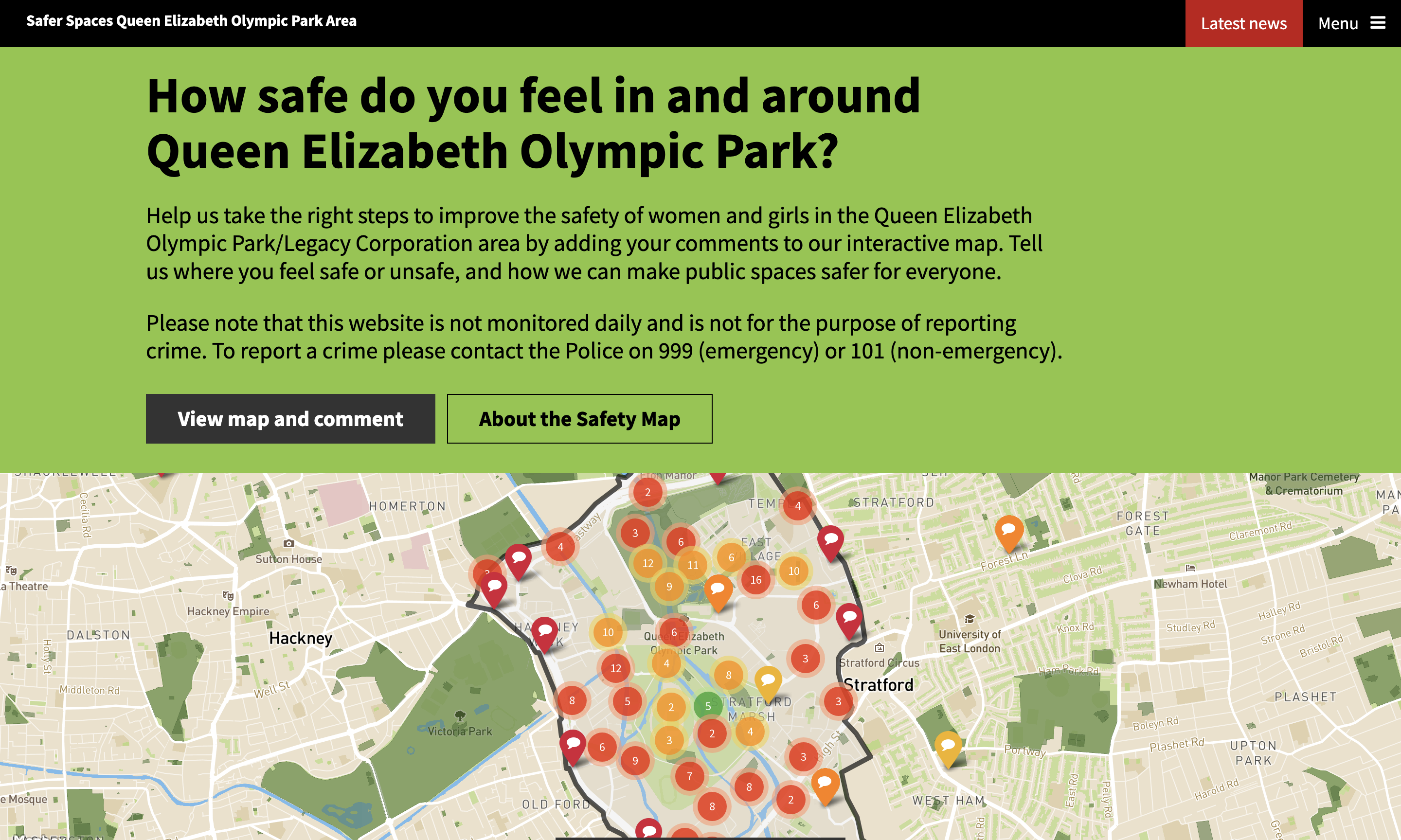
Many of our customers have integrated their VAWG research into their local communities. London Legacy Development Corporation area received the Royal Town Planning Institute 2022 Award for Planning Excellence and is ‘Highly Commended’ in the ‘Best Project’ category. They worked with Arup and used Commonplace as one of their methods for assessing and improving women's safety across the LLDC site: Queen Elizabeth Olympic Park Safer Spaces. Their use of the Heatmap supported the initiative and allowed LLDC to prioritise key interventions and give evidence to inform future planning, design, and development work. As said in their report, "a safe space for women and girls is a safe space for all."
LLDC have also been using the Commonplace Heatmap to highlight locations which can be seen as isolating and hostile environments. They are then using the data to build solutions and create a safe atmosphere in these spaces to prevent violence against women and girls.
Greenwich’s Women’s Safety
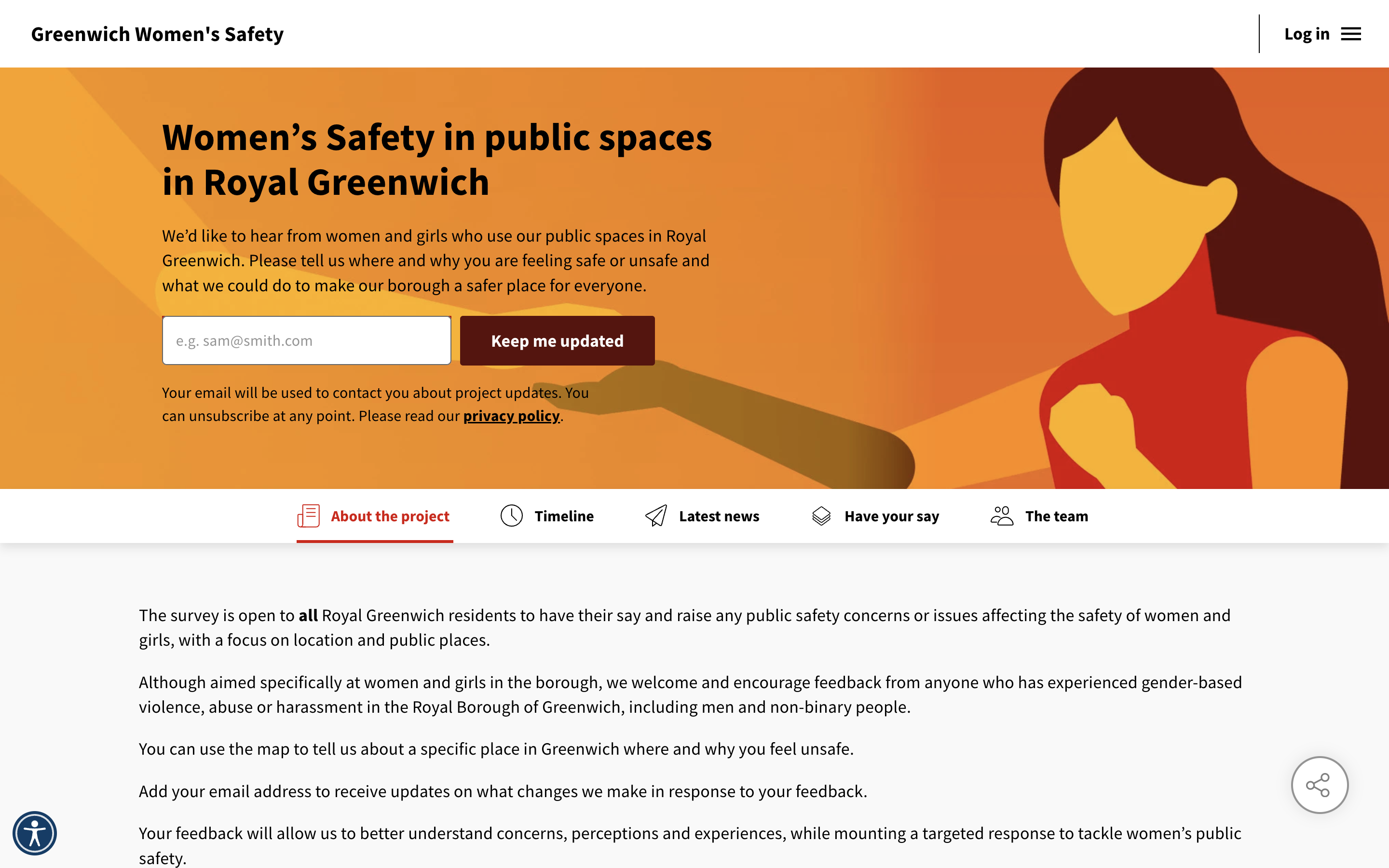
This survey was open to all residents in the Royal Borough of Greenwich to share concerns affecting the safety of women and girls, with the main focus on public places. The results and comments from this were fed into their final Women's Public Safety Plan. In addition to this, an equality impact assessment and the final report were shared in the summer of 2022 to support the implementation of critical mitigation measures.
- Over 4500 visitors
- Over 800 subscribers to project news
- Reaching over 1% of the local population
Greater Manchester Safer Streets
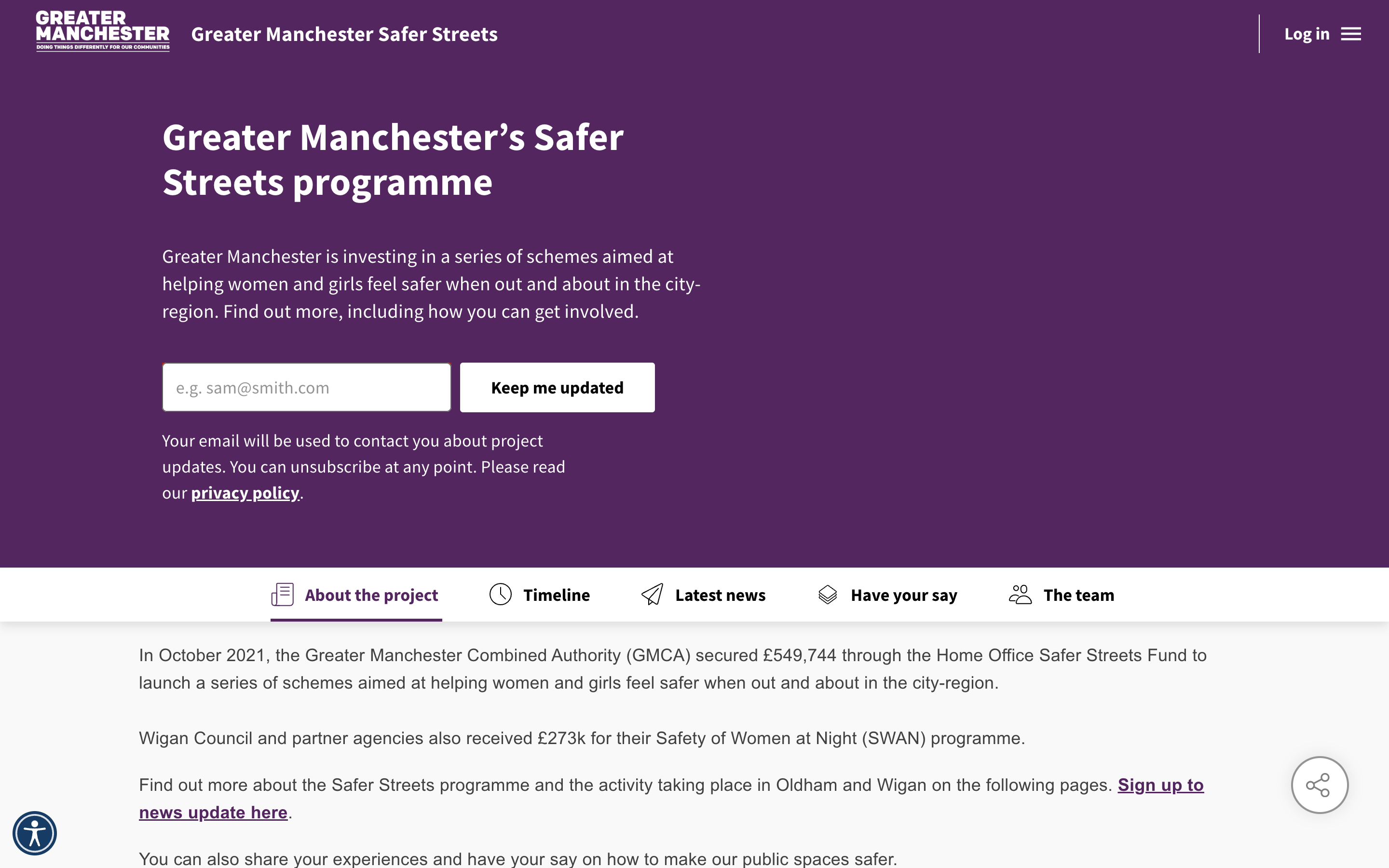
In October 2021, the Greater Manchester Combined Authority secured £549,744 through the Home Office Safer Streets Fund to launch a series of schemes aimed at helping women and girls. A Commonplace was launched as part of this programme where the extent of the programme was clearly explained and unsafe locations could be highlighted on a Heatmap.
Technological solutions are very important. The Commonplace app allowed us to see things that we hadn’t thought of and this helps us with the dialogue between women and girls. We do need more information on the issue, especially in our own areas as we don’t know the scale of it. We were able to gather this data which is essential for our report and resource which we got on the Commonplace platform. - It was also very useful as we were able to use it on our transport links, allowing us to highlight where people feel unsafe and then placing interventions which then the public was able to give their feedback on.
- Vicky Sugars, Principal for Policing and Communities Greater Manchester
For more information, including our offline measures, full case study details and a guide on how to start your own initiative, download our free eBook on using technology to fight violence against women and girls.
*
.png)
